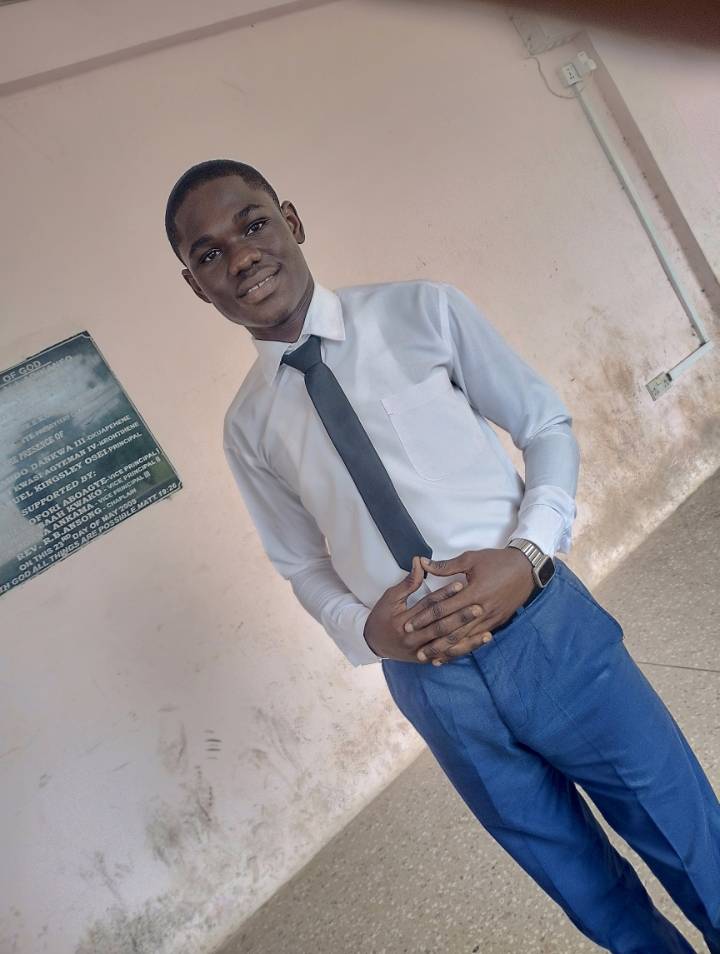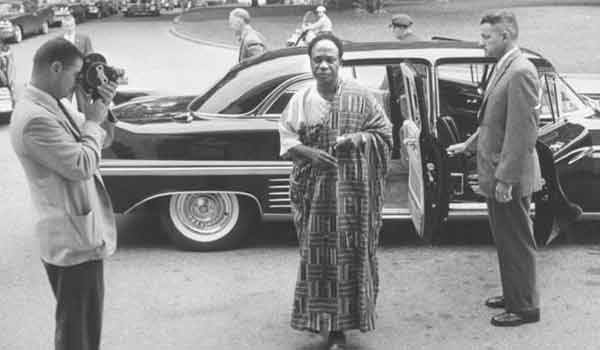The 21st of September has been designated as a national holiday.
Ambrose-Dery, Minister of the Interior, has declared Wednesday, September 21, 2022, a statutory public holiday.
Ghana's first president, Osagyefo Dr. Kwame Nkrumah, was born on September 21.
Parliament passed the new Public Holidays Act, 2018, in 2018 to amend the Public Holidays Act, 2001.
The new Act eliminated three public holidays, including September 21, and added two new ones, January 7 and August 4.
According to the government, the real fight for Ghana's independence began on August 4, 1947, which is why the September 21 holiday was replaced.
Meanwhile, here's a GhanaWeb article that goes over what Nkrumah said in his autobiography about his birth and birthday.
Ghana has celebrated the birthday of its first president, Osagyefo Dr. Kwame Nkrumah, on September 21 for many years.
In the past, the date was observed as Founder's Day in honor of the man who led the country to independence, the sub-first. region's
However, since the Akufo-Addo administration took office, the day has been observed as the first president's birthday.
We wouldn't find out for several years that the date - September 21 - was not, in fact, the exact date the country's first president was born.
Dr. Nkrumah, who was born in an era when births, marriages, and deaths were not recorded, cast some doubt on his date of birth in his autobiography.
The documentary, titled 'Ghana: The Autobiography of Kwame Nkrumah’ the book reveals some intriguing circumstances surrounding the birth of Dr. Nkrumah and how he got the 21 September date as his birth date.
“The only certain facts about my birth appear to be that I was born in the village in Nkroful in Nzima around mid-day on a Saturday in mid-September,” the first line of the first chapter of the book reveals.
Festival celebrations were the only ways parents were able to mark the ages of their children at the time and by that calculation, his birth year shouldn’t even be 1909.
"In the outlying areas of the Gold Coast nobody bothered to record the dates of births, marriages and deaths, as is the custom of the western world. Such happenings were remark able only because they provided a cause for celebration. By tribal custom it was enough for a mother to assess the age of her child by calculating the number of national festivals that had been celebrated since its birth. In most cases, however, even this was unknown as nobody was concerned very much with age: time did not count in those peaceful communities. The national festival of Nzima is called Kuntum. According to my mother's calculations, forty-five Kuntums have taken place since I was born, which makes the year of my birth 1912.”
But he got lucky after some time, to have been given a definite date of birth by a Roman Catholic Priest who baptized him whilst he was still young.
“On the other hand, the priest who later baptised me into the Roman Catholic Church recorded my birth date as 21st September, 1909. Although this was a mere guess on his part, I have always used this date on official documents, not so much because I believed in its accuracy, but in so far as officialdom was concerned, it was the line of least resistance. It was not until recently that I came to realise how near the mark this guess must have been.”
He recounted in the book how he settled on Saturday, September 18, 1909 as his date of birth after adding pieces of a historical puzzle, which pretty much made sense.
"On the night of 27th August, 1913, the Bakana, on her way back from Nigeria to the United Kingdom with a cargo of oil, got into difficulties in a particularly heavy surf between Dixcove and Half Assini. In spite of the efforts of the captain to turn the ship seawards, the Bakana was dragged by a strong current nearer and nearer the shallow water until she got her propeller embedded in about five feet of sand. Two ships, the Ebani and the Warri arrived the following day and endeavoured to pull her out to sea, but the Bakana refused to be moved. The master, Captain Richard Williams, then gave orders to abandon ship and the crew and a few passengers were safely lowered into surf boats and taken ashore,” he stated.
"My mother confirms that I was a small boy at the time and that the event occurred some time after she brought me from Nkroful to live with my father in Half Assini," he added. Assuming my birth year was 1909, the Saturday closest to the middle of September in that year was the 18th.
"It appears likely, therefore, that I was born on Saturday, September 18th, 1909," the book stated in several paragraphs.
Dr. Nkrumah also mentions that his birth coincided with the death of his grandmother, so there was much celebration and drumming in Nkroful - "not in honor of my birth, but in connection with my father's mother's funeral rites."
A copy of the book can be found at the North campus library of the University of Education, Winneba.




No comments yet
Be the first to share your thoughts!